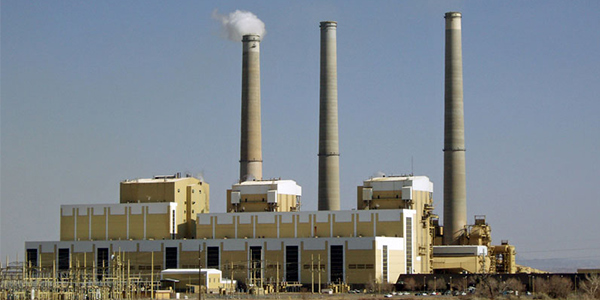By Hudson Sangree
The California Public Utilities Commission on Thursday unanimously denied PacifiCorp’s requested annual revenue requirement, rebuking the company for asking to cover the accelerated depreciation of out-of-state coal plants it hasn’t yet committed to close.
The commission approved a revenue requirement of $72 million — $6.6 million less than the utility’s request in its 2019 General Rate Case Application (18-04-002). Most of the requested revenue the commission denied was $5.24 million to cover the depreciation.
“Holding firm on actual retirement commitments for any accelerated depreciation request is an important key in holding the company accountable,” Commissioner Liane Randolph said at the CPUC’s voting meeting in Bakersfield. “Without a retirement date commitment, it’s possible California ratepayers could pay more over time and still be served by coal.”
PacifiCorp had asked for the changes in April 2018, contending that it sought to “mitigate current risks by increasing flexibility to address changing carbon policy. Specifically, PacifiCorp is proposing to accelerate depreciation on coal-fired resources so that all coal facilities will be fully depreciated by 2029 or earlier.”
PacifiCorp did not directly address the CPUC’s decision in a statement released Friday. “Pacific Power customers in Northern California will see a 5% reduction in their power bills under a decision finalized Thursday by the California Public Utilities Commission,” it said. “The decision, based on a filing originally made in early 2018, reflects the company’s reduced operating costs from prudent and efficient management including tax savings from the changes in federal tax law passed in 2017.”
PacifiCorp said its 2019 integrated resource plan, announced in October, calls for transitioning to lower-cost renewable energy and retiring 16 coal-fired generating units among its dozen Western coal-fired power plants by 2030.
“The unit retirements described in the IRP plan will reduce coal-fueled generation capacity by nearly 2,800 MW by 2030 and by nearly 4,500 MW by 2038 while maintaining reliability and affordability for customers,” the utility said.
Calling out PacifiCorp
PacifiCorp serves about 45,000 customers in California, representing about 2.4% of its total customer base in the West. The utility, based in Portland, Ore., divides its operations between Pacific Power in California, Oregon and Washington, and Rocky Mountain Power in Idaho, Utah and Wyoming.
PacifiCorp’s California service territory occupies an area of rugged mountains and small communities near the Oregon border. Of PacifiCorp’s 10,880 MW of generating capacity — from hydropower, wind, natural gas, coal, solar and geothermal resources — only about 70 MW — all hydro — is in California. All of PacifiCorp’s coal units are in other states, primarily Utah and Wyoming, and serve customers throughout its service territory, including in California.
“Given that so much of their assets and operations are located outside of California, we had to ensure that the small number of ratepayers within California were protected,” Randolph said.
“Under PacifiCorp’s request, California ratepayers would pay off those coal assets faster than their useful lives,” she said. “And this benefit from ratepayers might have been appropriate if PacifiCorp had in turn fully committed to retiring those facilities.”
While the utility has said informally in other venues that it would close its coal plants, “it made no commitment to do so in this proceeding,” Randolph said.
Under Senate Bill 100, passed in 2018, California must remove fossil fuels from its resource mix for retail customers by 2045. Getting rid of polluting coal power is a top priority, and the CPUC has been irked by PacifiCorp’s refusal to commit to retire its plants in other states.
Randolph said PacifiCorp is welcome to submit its coal plant closure plan to the CPUC sooner than its next rate case in 2022 along with a request for accelerated depreciation.
Commissioner Martha Guzman Aceves thanked Randolph and commission staff members for their work in the rate case and questioned why PacifiCorp wasn’t more willing to commit to retiring its coal plants.
“I just appreciate [you] calling out … PacifiCorp [for] having the audacity to seek such a rate benefit while not committing to the retirement of coal,” Guzman Aceves said. “Although obviously we have huge climate goals to drive our dependency on coal away, that really is not even necessary here. It’s really that this resource is no longer cost effective.”





